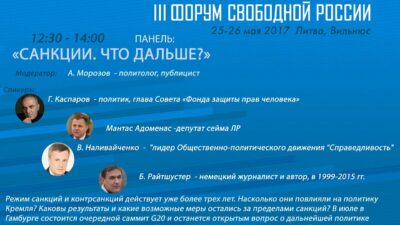Somewhere before the request for more money for Yekaterinburg’s subway, but after the question about the high cost of flying to the faraway Kamchatka Peninsula, President Vladimir Putin got a couple of politically vital questions during his marathon annual news conference on December 19.
“Is it time to change to constitution?” he was asked by a reporter from the state news agency RIA Novosti. Should the balance of power between president, parliament, and cabinet be changed?
Putin responded by saying there was no need for a new constitution — not that anyone had asked about such a radical change.
“This is a living document. It should reflect the level of development of society,” he said. “But I nevertheless think that for us…a new constitution does not need to be passed.”
One way the constitution could potentially be changed, he said, was to “remove the word ‘consecutive'” from the clause that says no person can serve two consecutive presidential terms.
“Your humble servant served two successive terms and then stepped down and had the constitutional right to return to the post of president…. But some of our political scientists and activists do not like this and maybe this could be removed, possibly,” he said.
Parlor Game
The comment made close watchers of Kremlin politics, and observers of Putin’s political trajectory, sit up and take notice.
Though primarily a Kremlinologist parlor game for years now, the question of Putin’s future has come into sharper focus since he started a fourth presidential term last year.
Putin’s 2018 reelection was for a second consecutive six-year term — after a four-year hiatus that followed two straight four-year terms in 2000-08.
In 2008, rather than violate the constitutional bar on three straight terms, Putin stepped down and steered his protege Dmitry Medvedev into the presidency.
Among the first initiatives taken up by Medvedev was lengthening the presidential term to six years, instead of four.
In 2012, Putin switched places with Medvedev and returned to the Kremlin, where he remains.
And both he and the Kremlin have remained coy about what plans are in store.
Putin still commands relatively high popularity ratings, despite a slip over the past year or two.
But his allies have floated ideas about changing the constitution, including in September when a longtime confidant hinted at it.
Prior to that, it was the speaker of the lower house of parliament, the State Duma, and even the chief justice of the Constitutional Court.
The issue of changing the constitution is fraught for several reasons, experts say, not least of which is that such a change would be accompanied by the perception that it benefits Putin.
More importantly, however, is that it’s unclear what exactly Putin was proposing.
Signaling To Future Leaders?
Some of Putin’s biggest cheerleaders said the remarks were definitive: He won’t run for another term – neither in 2024 nor in 2030, when he would be eligible under the current wording of the constitution.
“If anyone had any doubts about whether the Boss will seek another presidential term, he will not,” Margarita Simonyan, the editor in chief of Russian state-funded broadcaster RT, wrote in a post to Twitter.
But Will Pomeranz, a Russian constitutional law expert and deputy director at Washington’s Kennan Institute, said it appears that the specific part of the constitution where the word “consecutive” is written can be changed with a super majority in the Duma.
He said the cryptic wording Putin used in answering the question may suggest not that Putin was looking necessarily to stay in power by amending the constitution; rather, he was signaling to future leaders that no one else would be able to replicate his four terms as president.
“The way he has raised the issue, it would appear that no else could serve more than two consecutive terms. Unless he’s trying to get rid of the entire clause, which would allow for unlimited terms, but that’s not what I think he’s doing,” said Pomeranz, author of a recent book on Russian law.
“The reading I have now is that it would mean no one else in the future could do what [Putin] did,” in having four nonconsecutive terms, he said.
Other Potential Scenarios
That would still leave room for Putin to hold power from another position after he leaves the presidency.
There are several scenarios that have also come up for discussion, either by Putin allies or by Kremlin analysts.
One would be what Vyacheslav Volodin, the speaker of the Duma, has hinted at: tweaking the constitution to lessen the powers of the presidency and strengthen the powers of a parliament, making for a more powerful prime minister.
For the factions known as the siloviki – a shorthand word describing members of the military, intelligence, security, and police agencies – the problem is that this could open the door to greater scrutiny from Duma members in the future.
Another would be what some observers have called the Nazarbaev scenario – named for Nursultan Nazarbaev, who stepped down as Kazakh president this year but heads the country’s Security Council and holds other positions that allow him to exert strong influence on politics in the Central Asian nation.
Still another would involve what amounts to closer integration with Belarus under the Union State, which exists largely on paper but – if beefed up – could potentially be a vehicle for Putin to hold power over both Russia and Belarus.
The problem with that is Belarus’s longtime leader, Alyaksandr Lukshenka, has resisted an effort that would see him losing clout in his own country.
Putin and Lukashenka were supposed to conclude a road-map agreement that would pave the way for the Union State this month.
It didn’t happen.
Source: RFE/RL




